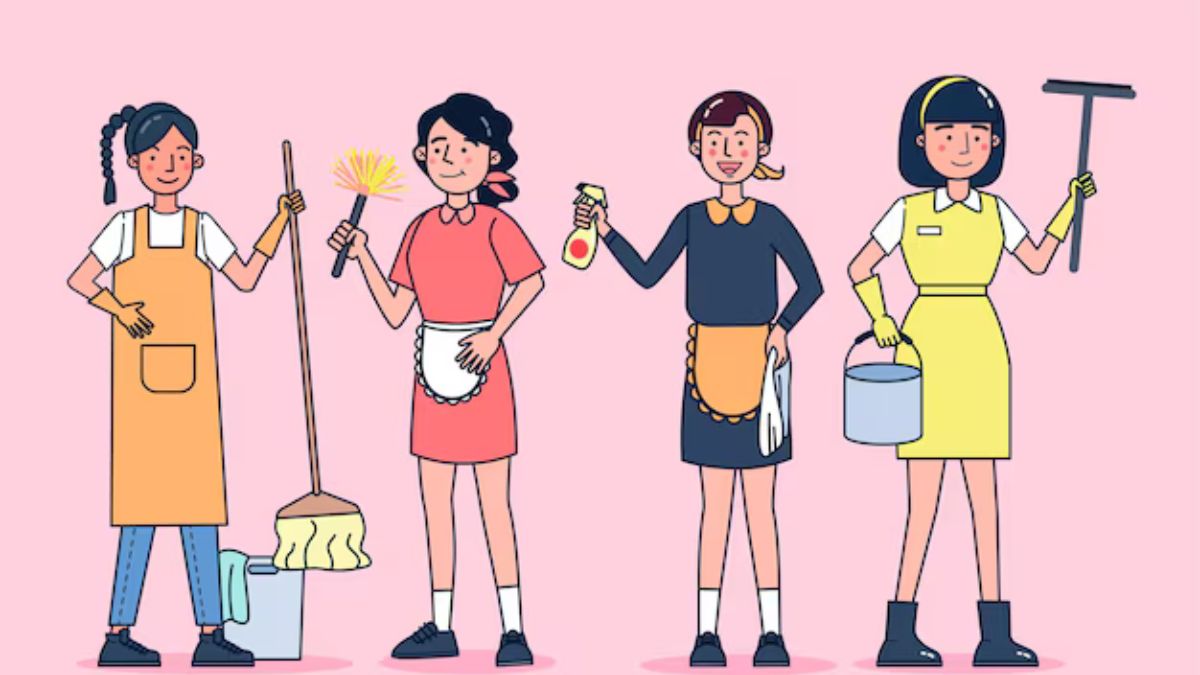Who Takes Care of the Caretakers? The Burden of Unpaid Work on Women

Imagine getting up before dawn, boiling tea, cooking breakfast, packing lunchboxes, getting kids ready for school, and then tackling a big list of housework. If there is an old person at home, their needs are met, including medicine, food, and emotional support. The day continues into the evening with additional cooking, cleaning, assisting children with schoolwork, and planning for the next day. This is the everyday ritual for millions of women throughout the world.
However, despite the arduous nature of these jobs, they are neither formally recognised nor reimbursed. It’s simply referred to as “unpaid care work.”
The Three Burdens: Work, Family, and Society
Globally, women do three times more unpaid care work than men. This is more than simply cooking and cleaning; it also encompasses childrearing, senior care, emotional labour, and community service. Lower-income families that are unable to hire domestic assistance bear a disproportionately heavy cost.
While males are frequently the major breadwinner in many homes, women’s contributions are undervalued—despite being as important. They work as unpaid chefs, nurses, housekeepers, instructors, and therapists. The dichotomy is striking: if a woman were compensated for each of these tasks, her wages would be enormous. However, because it is labelled “love” or “duty,” it is simply expected of her.
The Unseen Economy: How Women’s Work Transforms the World
Consider the economy to be an iceberg. The visible portion comprises of industry, offices, and companies. However, the buried, invisible component is home labor—without which all else would disintegrate. Consider the scenario in which all unpaid care workers went on strike for a single day. Children would not be fed, schools would struggle, hospitals would be overburdened, and businesses would be in disarray.
According to the International Labour Organisation (ILO), if unpaid care work were given a monetary value, it would contribute at least 10% of world GDP. Despite its significant economic impact, policymakers seldom address it.
Generational Gaps: Lessons from Our Mothers and Grandmothers
Ask your mother or grandma whether they have ever taken a break. Many women in previous generations dedicated their entire lives to family care without recognition. In rural India, a woman gets up at 4 a.m. to collect firewood, cook for her family, walk kilometres for water, and tend to the crops. Her day doesn’t truly finish.
But generational trends are changing. Younger women, particularly in metropolitan settings, are challenging traditional standards. The emergence of nuclear families, job goals, and shifting gender dynamics are reshaping care work. However, the essential question remains: who cares for the caretaker?
Emotional Labour: The Weight of Constant Giving
Aside from physical tasks, women endure an incredible amount of emotional labour. This includes remembering birthdays, navigating social situations, resolving family disagreements, and offering emotional support. Women are supposed to be carers by default, a job that is rarely acknowledged until it is missing.
Consider the last time you saw a woman apologise for asking for help or feel bad about taking time for herself. The demand to be “always available” has a negative impact on mental health, causing stress, worry, and burnout.
Why Men Should Share the Load?
The solution is to redistribute unpaid effort rather than simply recognise it. When males share domestic tasks, children witness equality in action. Cooking supper or doing laundry should not be regarded “helping” his wife; rather, it is his part of responsibilities.
Small adjustments may have a huge impact. Countries such as Sweden and Norway provide paid paternity leave to encourage fathers to become more active in childrearing. Some businesses are implementing flexible work practices to accommodate caring duties. However, societal improvements must begin at home, with normalised talks about fairness, workload, and self-care.
Where Do We Go from Here?
Governments, companies, and society must recognise and disperse care work. This can be accomplished through:
- Policy Changes: Paid parental leave, subsidised daycare, and improved work-life balance alternatives.
- Education and Awareness: Schools should teach both boys and girls about family responsibilities equally.
- Community Support: Increased childcare facilities, geriatric care programs, and neighbourhood support networks.
Women should no longer bear the unseen burden of unpaid care work. It’s time to respect, recognise, and distribute the labour that keeps the world going.
So, the next time you see a woman juggling several tasks, don’t just praise her efforts; step in, share the burden, and start a discussion.
Because caring is a responsibility shared by everyone, not just women.
Recognising the worth of unpaid labour is the first step towards creating a more equitable society in which every hour of effort, whether at home or at work, is recognised and respected. Individuals, governments, and corporations must all work together to bring about this transformation. We may achieve real gender equality when families assist one another, companies develop better rules, and governments provide the essential infrastructure.
The world cannot run without care labour, and it is time to stop taking it for granted. The future relies on how we choose to recognise, reward, and disperse this labor – so let us begin now.
Also read: The Hidden Victims of Climate Change: Women in Vulnerable Communities









